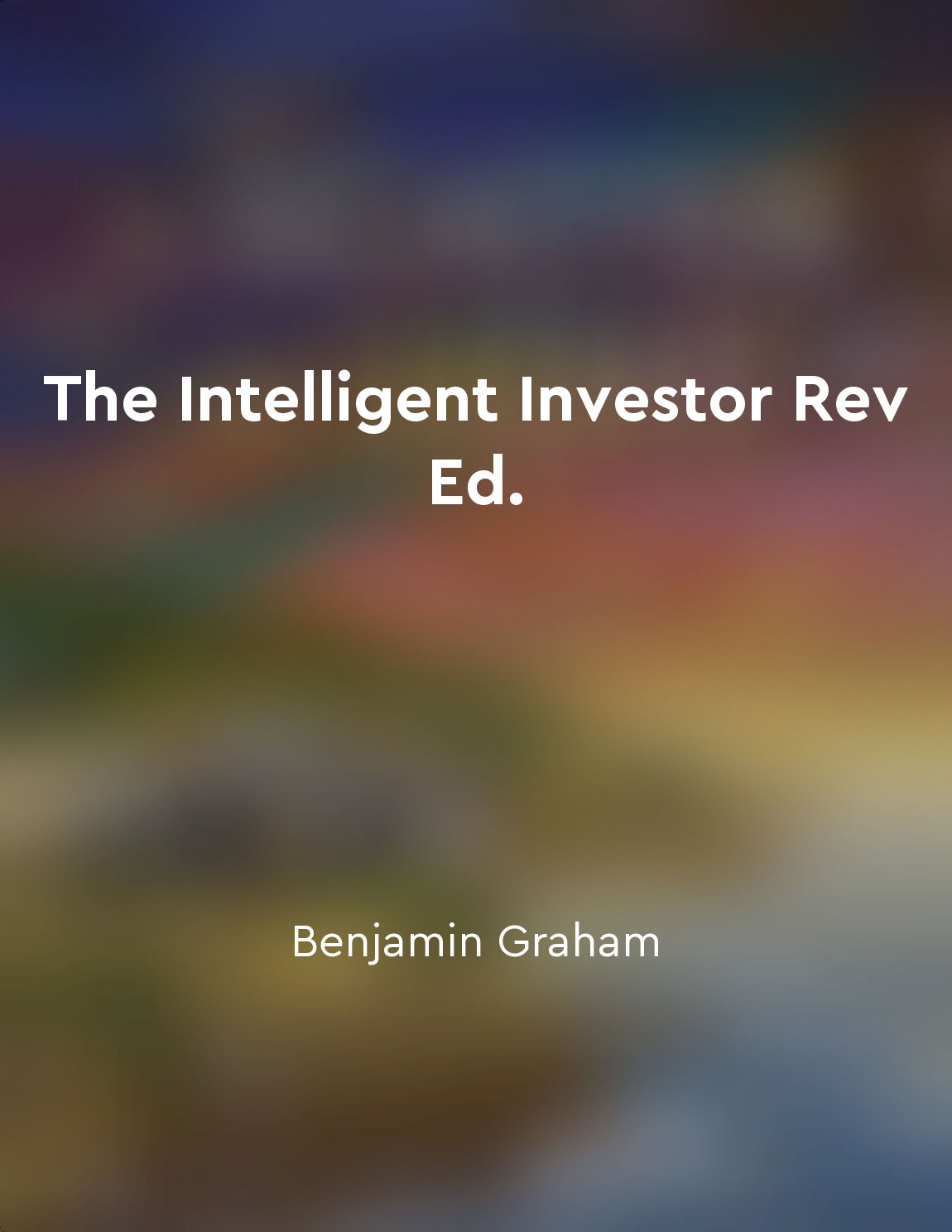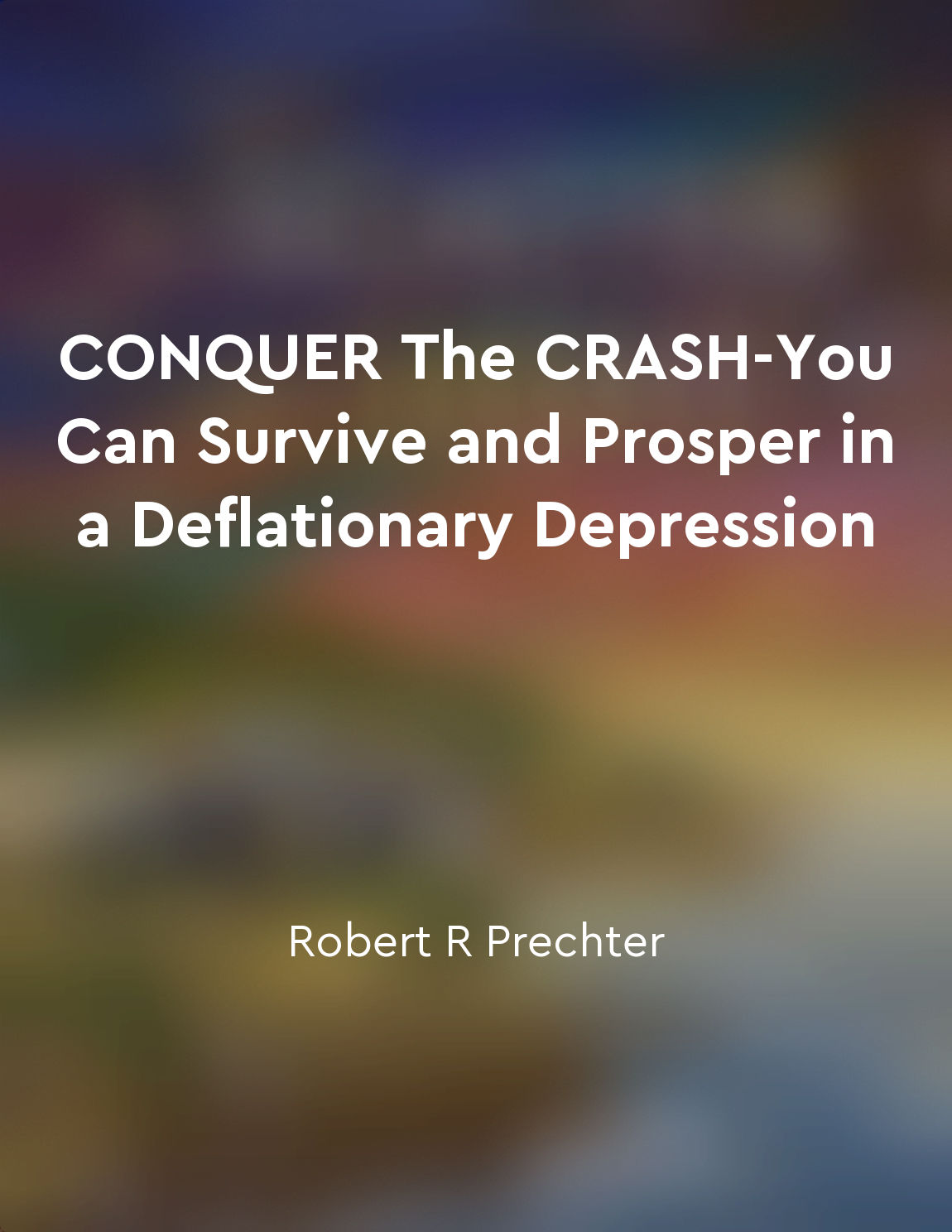Market optimism led to speculation from "summary" of The Great Crash 1929 by John Kenneth Galbraith
Market optimism, that most enduring and dangerous of all investment emotions, was the driving force behind the speculative fever that gripped the nation in the late 1920s. This relentless optimism, fueled by a seemingly endless upward climb in stock prices, led investors to abandon all rational thought and caution. The prevailing belief was that the stock market could only go up, that wealth could be effortlessly accumulated through the buying and selling of stocks. This irrational exuberance created a feedback loop, where rising prices only served to reinforce the belief that further gains were inevitable. As stock prices soared to dizzying heights, speculation became the preferred means of wealth accumulation for many. The allure of quick and easy profits proved irresistible to investors of all stripes, from seasoned professionals to novice amateurs. The promise of untold riches seemed within reach, if only one could time the market just right. This speculative fervor reached a fever pitch in the months leading up to the crash, as investors clamored to get in on the action before it was too late. The speculative bubble was further inflated by a pervasive sense of complacency among investors. The prevailing attitude was one of invincibility, as if the laws of economics and finance had been suspended indefinitely. Risk was cast aside in favor of blind optimism, as investors convinced themselves that they were immune to the inevitable downturn that loomed on the horizon. This reckless abandon only served to exacerbate the underlying fragility of the market, setting the stage for the catastrophic collapse that was to come. In hindsight, it is clear that market optimism had blinded investors to the inherent risks of speculation. The belief in a perpetually rising market had clouded judgment and obscured reality, leading many to make ill-advised and reckless investment decisions. The consequences of this collective folly would be felt for years to come, as the Great Crash of 1929 ushered in a new era of economic hardship and uncertainty. The lessons of that fateful period serve as a stark reminder of the dangers of unchecked optimism and the perils of speculative excess.Similar Posts

Stay disciplined when investing
Investing requires a disciplined approach, where one must resist the urge to follow the crowd or make impulsive decisions based...

Be prepared for a deflationary depression
The concept of being prepared for a deflationary depression is crucial in today's economic environment. As the financial market...

Ratings agencies failed to properly assess risk
The rating agencies were supposed to assess risk. They were supposed to decide how risky bonds were. They failed spectacularly....
Behavioral biases can create market inefficiencies
In financial markets, investors are not always rational decision-makers. They are often influenced by behavioral biases that ca...
Speculators borrowed heavily to invest
Speculation in common stocks had become virtually a national pastime. People of all ages and professions were caught up in the ...

Few individuals saw the catastrophe coming
The catastrophe wasn't just around the corner, waiting to pounce on unsuspecting victims. It was brewing beneath the surface, h...
Financial bubbles formed again
The most significant development in the American economy during the 1920s was the creation of a vast speculative bubble in the ...
Market volatility persisted
The characteristic of market volatility persisted is particularly notable during the time surrounding the Great Crash of 1929. ...
